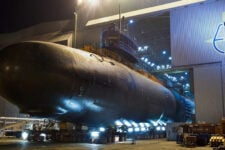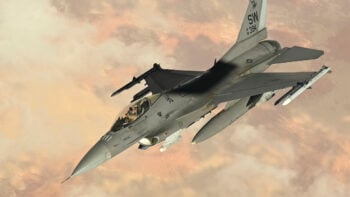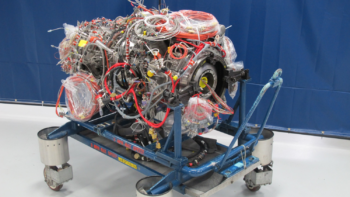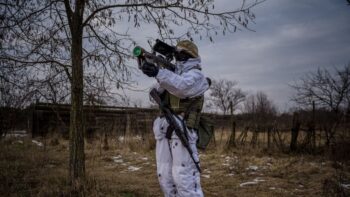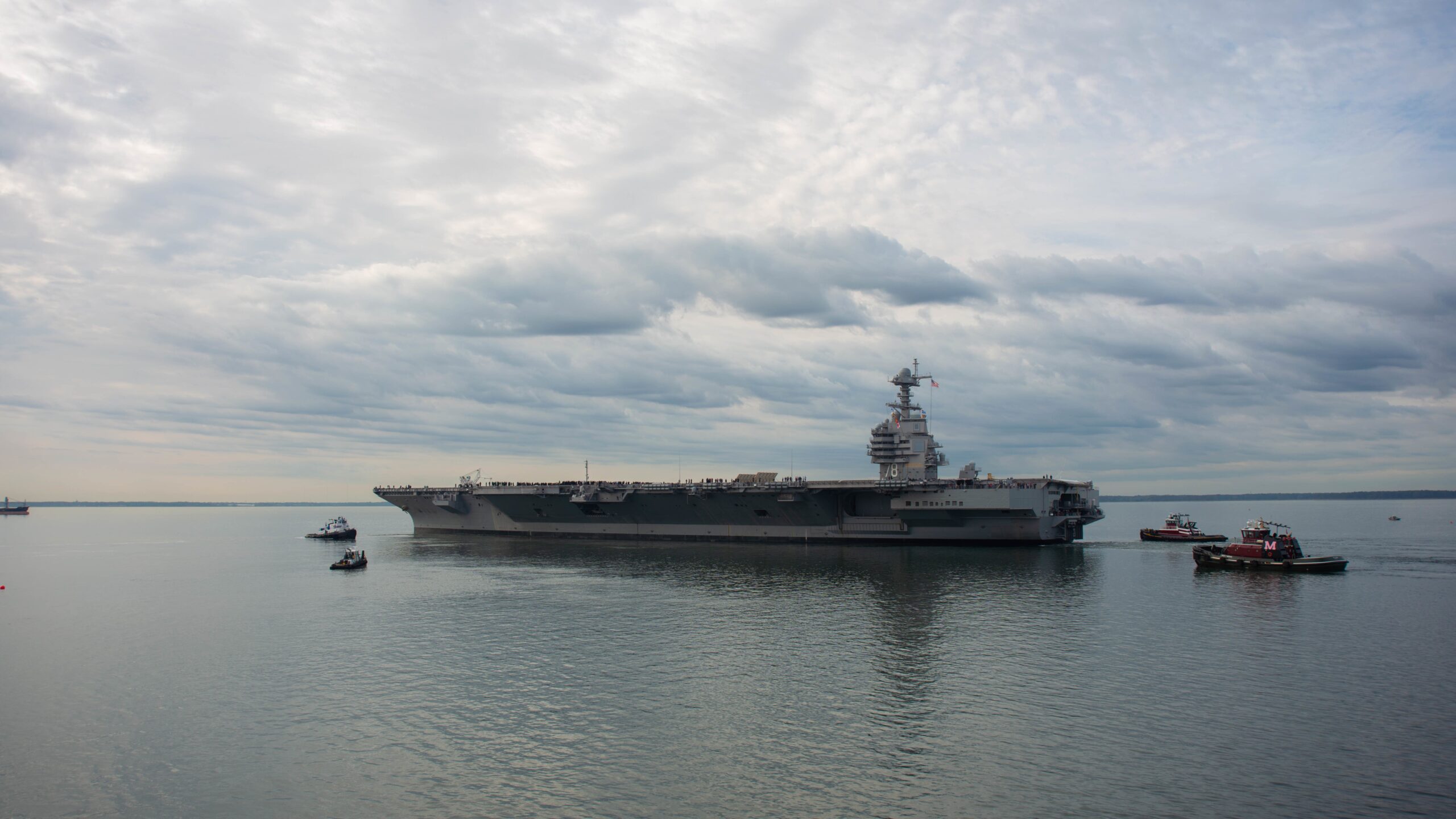
USS Gerald R. Ford (CVN 78) turns into the James River as it gets underway in 2019. (US Navy/Tatyana Freeman)
SEA AIR SPACE 2022: The Navy in December quietly determined the aircraft carrier Gerald R. Ford (CVN-78) had achieved initial operational capability, the program manager for the ship revealed today.
The milestone was officially reached on Dec. 22, 2021, when the last advanced weapons elevator was turned over, Capt. Brian Metcalf, the ship’s program manager, told attendees at the Sea Air Space exposition.
Initial operational capability is an important acquisition milestone that indicates the ship’s capabilities have reached the minimum thresholds required to be operationally useful. In other words, the super carrier that has plagued the Navy with cost overruns and schedule delays for more than a decade now, is finally at a state where the service can use it in a real-world operation.
The ship is scheduled to deploy in the early fall.
RELATED: Gerald R. Ford completes full ship shock trials
The fact the Navy did not make any announcement is surprising because the service’s performance in building and delivering the Ford has attracted large amounts of negative news coverage, critical reviews from outside analysts and, perhaps most importantly, intense scrutiny from lawmakers.
Asked why the service did not announce the activity, Metcalf said “some people know what IOC means and some people don’t.”
“It’s a very acquisition specific milestone,” he added. “The conditions on the ship don’t really change because of IOC.”
The 23 new technologies the Navy have integrated onto the Ford, such as the advanced weapons elevators and the electromagnetic aircraft launch system, have received much attention over the years from Pentagon weapons testers and third-party government auditors.
Chief of Naval Operations Adm. Michael Gilday publicly acknowledged last summer that putting so many new technologies on the Ford was a mistake.
“The ammunition elevators are an exceptional example of a painful process over the past four or five years,” the CNO said.

